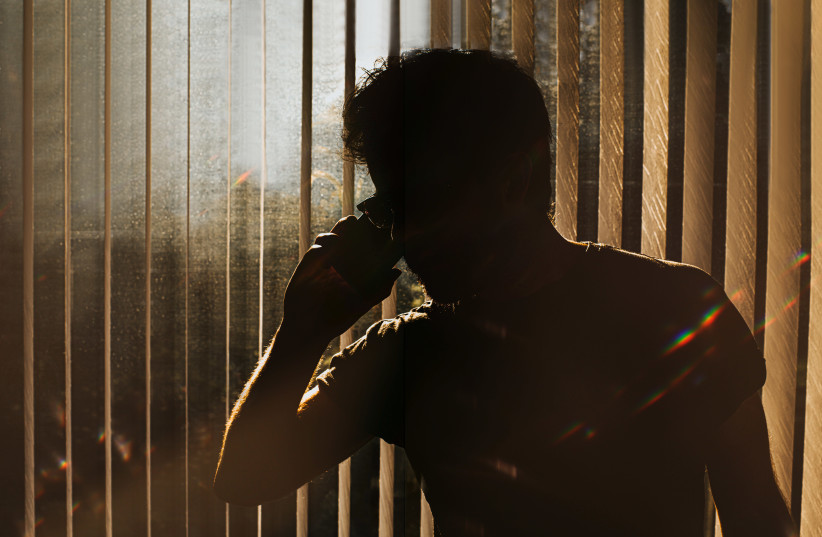Mental health problems are, sadly, still widely misunderstood. Those who have suffered themselves or helped someone with such problems will know this. Stigma is a word which springs to mind. Finding the right help and support can be difficult to the point of impossible.
For some, this can, quite literally, be a lifesaver, as was the case for Orna, a Romanian born Israeli woman, whom I was fortunate to meet recently. For Orna that support has been selflessly provided by Rika Meyerowitz, an ESRA volunteer, who has stood by her since they first met around six years ago.
ESRA is Israel’s largest English-speaking community network. They offer over 250 yearly social and cultural activities in English, improve familiarity with and skills for dealing with the various systems that make up the Israeli environment, provide opportunities for volunteering in the community and offer personal support services, including mental health services.
Orna suffers from what she describes as manic depression or bipolar disorder as it is now known. Her condition was triggered by her husband’s death 15 years ago.
Two years later she became unwell and her life started to spiral out of control. She started drinking heavily and eventually lost her job as an English teacher. She knew she’d hit rock bottom when she could no longer control her bodily functions or keep food down.

It was at this point that Orna’s painfully slow road to recovery began, as she turned to her long suffering son, himself a doctor, for help. He referred her to a specialist who prescribed medication to help her stop drinking. Although she has relapsed on a couple of occasions, one of which resulted in a prolonged stay in hospital, Orna has been dry for six years and now works in a library one day a week.
Orna credits her friend, Rika, with the highest accolade: that of saving her life. During the initial stages of her recovery, Orna’s social worker thought she would benefit from the befriending services run by ESRA and accordingly an introduction was made between Orna and Rika.
Since then, Rika has been there for Orna through her darkest moments, providing support, friendship and encouragement. Even during Orna’s relapse (which occurred soon after they’d met), leading to five weeks of radio silence whilst she was in hospital, Rika did not give up on her.
Once out of hospital, their friendship resumed and grew. The two now meet every week, without fail. Initially, they would meet at home as Orna was reluctant to go out. Now, they love to meet for coffee and cake in local coffee shops, where I joined them a couple of weeks ago to learn about Orna’s story.
Orna says her recovery is largely down to Rika, who always takes an interest in her day to day life, asking her how she’s feeling and what she’s doing. Little questions like what did you make for dinner mean so much to Orna.
Sadly, as is so often the case for those who suffer from mental health problems, Orna does not have a wide circle of friends. In fact, Rika is her only friend. “She’s something,” is how Orna describes her. And indeed she is. Rika’s patience and understanding has led to a beautiful friendship between the two women. It is one of mutual respect, each clearly delighting in the other’s company.
Sadly, too few are willing to give people like Orna a chance. Breaking down the stigma and barriers which surround mental health problems is something which requires patience, perseverance and understanding.
Rika has all of these attributes in spades. Her determination to remain in Orna’s life, despite all the obstacles, has benefited not just Orna, but herself, too.
It is vitally important that we all do more to understand and learn about mental health. At the very least we should be able to spot the signs of someone in distress and know how to help them, even on a rudimentary basis. Such problems can strike any of us at any time and for any reason. None of us is immune.
Thankfully for Orna, Rika has been a constant in her life during her recent and most difficult years. She’s always there to remind her to go to work, to nag her to stop smoking, to ask her how she’s doing and above all, to be her friend.
Thanks to ESRA and Rika in particular, Orna no longer suffers the double blow of isolation and helplessness, which so often goes hand in hand with mental health problems.
If you need help and support, ESRA offers counseling services (modest fees may apply) staffed by professional counselors, support groups and befriending services. Call Susan (052-698-9088) or Cecily (050-373-1302) for details. For more information, visit: Esra.org.il (volunteers also welcome).
The writer is a former lawyer from Manchester, England. She now lives in Netanya, where she spends most of her time writing and enjoying her new life in Israel.
